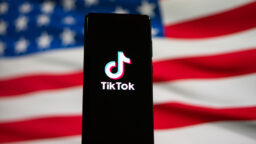Google has just issued their report How Google Fights Piracy, setting out its case for how it protects content online. Here, Geoff Taylor, Chief Executive of label body BPI, which promotes British music, responds by giving his alternative take on Google’s efforts on piracy.
- Copyright Solutions That Don’t Work As Well As They Should. Google’s Content ID system for YouTube is a great idea – content owners should only have to notify their content to Google once, and Google should then use automated technology to make sure that content is either monetised, or blocked from appearing illegally. That’s a principle that should apply right across Google services. But despite its amazing innovations in mapping the Earth and inventing driverless cars, Google hasn’t managed to implement a Content ID system that people can’t easily get around. Of course the fact that Google refuses to remove YouTube videos that show you exactly how to circumvent Content ID doesn’t help. Google should concentrate its formidable resources on making a Content ID system that is genuinely effective in protecting creators; and then apply a similar proactive system to Google search and its other services.
- Providing Unfairly Low Revenue Streams to the Content Industries. This isn’t strictly a piracy issue, but we can’t ignore the fact that YouTube pays 1/16th as much for each of its music users as competing services like Spotify. And while UK music video streams almost doubled last year, payouts from YouTube to labels increased by only 0.4 per cent. It’s time that Google started sharing a fair proportion of the value it derives from YouTube with creators.
- Connecting Fans to the Black Market. We agree that the best way of fighting piracy is providing more convenient, legitimate alternatives. That’s why music companies have licensed more than 200 digital music services, including Google Play. But Google persistently directs fans to illegal sites in preference to those legitimate services. Two weeks ago the BPI searched for the UK Top Ten singles in Google (artist + title + download) and 77 per cent of the links on the first page of search results were to illegal sites. That is worse than it was back in 2013. And despite the detailed understanding it should have of the piracy landscape, from the 300 million notices it has received from BPI and RIAA, Google has repeatedly refused to make further changes to its algorithm to improve its search results. Its autocomplete and suggested searches regularly push fans towards illegal sites. And its app store has no screening process to remove apps which are obviously intended for piracy.
- Helping Sites Rip Off Creators. The fastest-growing problem area in piracy is “stream ripping” – sites which illegally convert YouTube streams into downloads. These sites are very well known to Google, as is the harm they do to the recorded music sector. Yet although such sites breach YouTube’s terms of service and seem to contradict its business model – by turning ad-supported transient streams into permanent copies – Google continues to point to these sites in autocomplete and to host YouTube videos showing how to use them. And it hasn’t taken effective action to counter such ripping sites, even though it has the information to know each time that it streams our music to them, that it is facilitating an illegal copy.
- Follow the Money. Fair play, Google has helped to reduce advertising on pirate sites. Thanks Google! Can we do more of this please?
Music Business Worldwide




